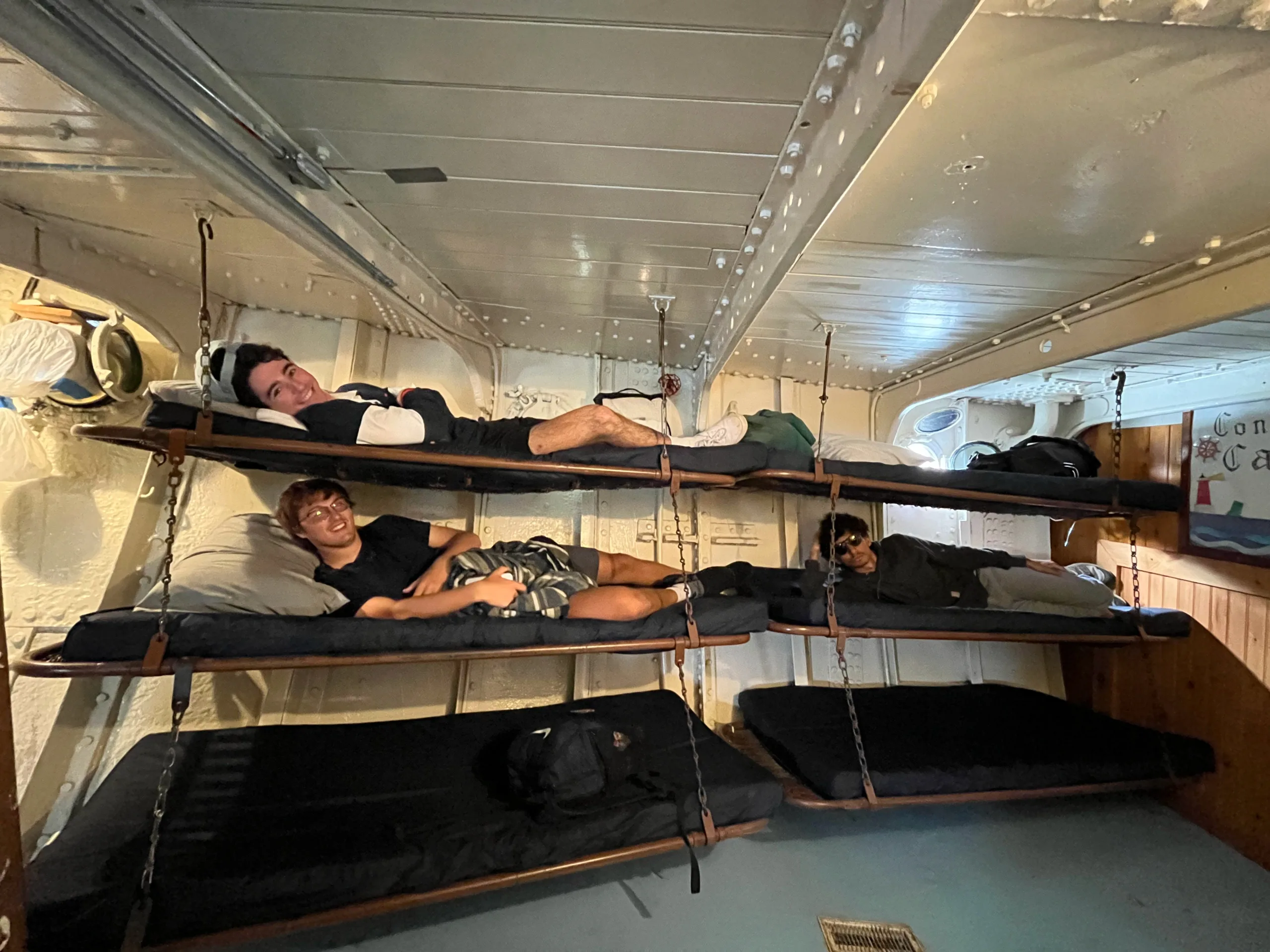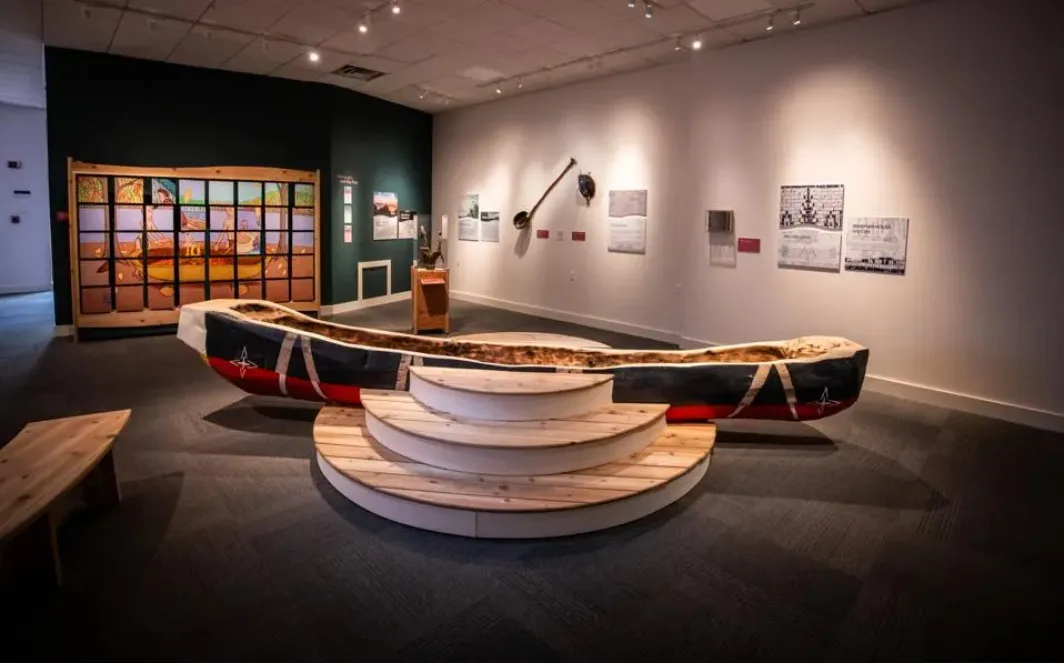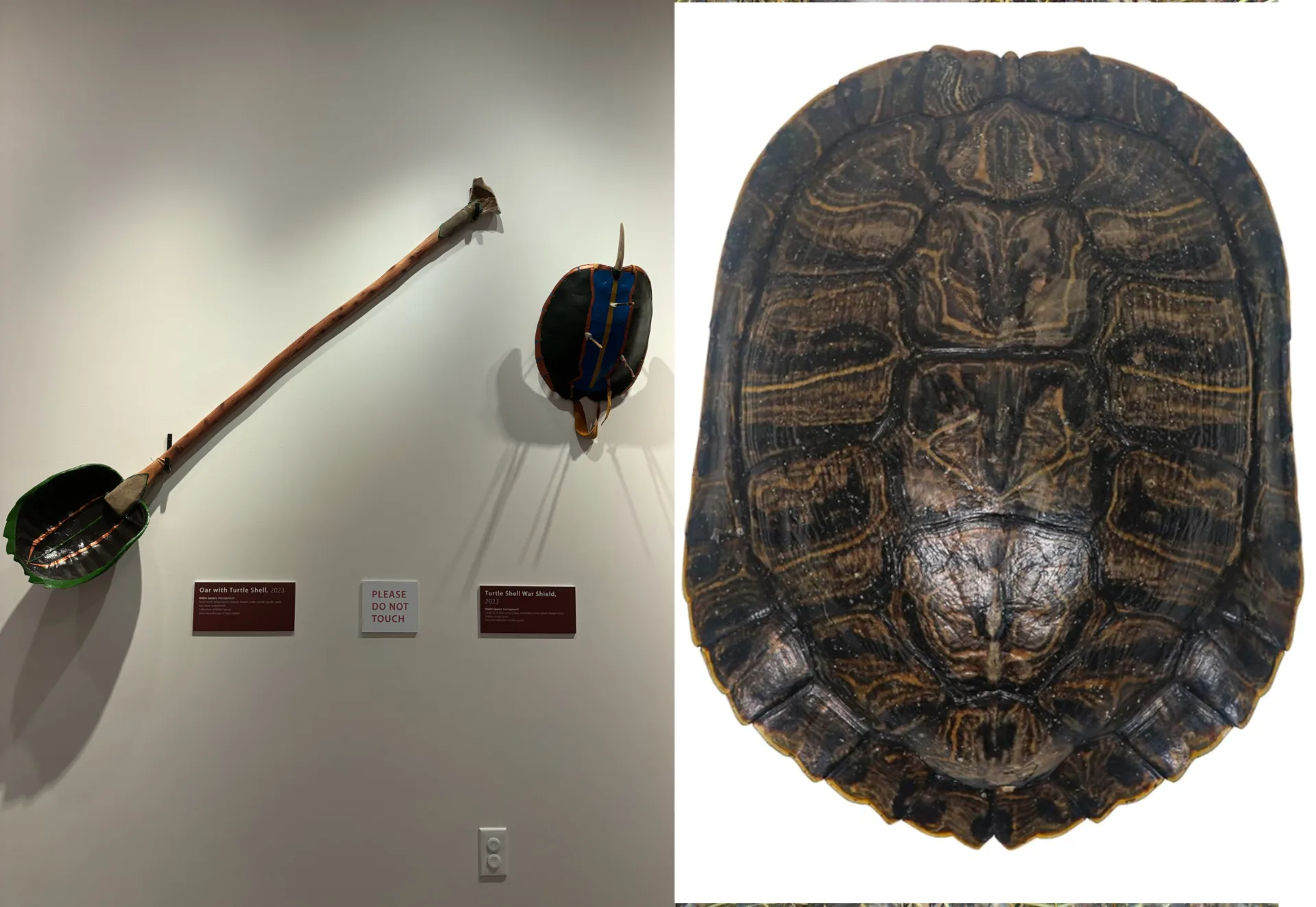Programs Blog
A Trip to Mystic Seaport

Sunday, 8 September 2024
SEA Campus, Woods Hole, Massachusetts
66°F and sunny
My name is Katie Hallee, and I am an undergraduate at Wheaton College in Massachusetts majoring in Environmental Science. This weekend, both the SEA “Coral Reef Conservation: Caribbean” program and the “Oceans and Climate” program embarked on our field trip to the Mystic Seaport Museum! The museum was founded in 1929 and strives to “inspire an enduring connection to the American maritime experience.” Walking through the museum immersed me in what a 19th-century seaport village was like. The historic buildings were transported and preserved by the museum which creates a life-sized exhibit showcasing buildings as they were during the 1800s. Furthermore, more than 500 historic watercraft are also preserved by the museum. We had the opportunity to spend the night on an iron-hulled sailing ship named the “Joseph Conrad.” This definitely called for some program bonding by being crammed into a single room in triple bunk beds!
One of my favorite experiences during our time in the Seaport was going into an exhibit called “Entwined: Freedom, Sovereignty, and the Sea.” Dr. Akeia de Barros Gomes guided us through the exhibit as the translator, highlighting the maritime histories in African, African-descended, and Indigenous cultures and perspectives. I was very impressed with the efforts in designing this exhibit which emphasized the importance that wording matters. For example, throughout the exhibit, rather than using the term “New England,” displays used “Dawnland” instead. The Pequot and Bantu words “Kuhtah” and “Kalunga” were also always used instead of the “Atlantic Ocean.” I think this intentional wording was done throughout the exhibit to eliminate a Eurocentric lens, and rather, accentuate African, African-descended, and Indigenous voices. This is an important consideration to give African, African-descended, and Indigenous the autonomy to tell their own narratives.
One of the most fascinating things that I learned about in “Entwined” was the significance of tortoises in both African and Indigenous cultures because of the symbolism of their shells in parallel to the moon. The 13 skutes on the shell represent a lunar cycle in their cultures, equivalent to a Western calendar month. The 28 surrounding platelets represent each day in that moon’s cycle. I think this highlights how African and Indigenous cultures have a worldview that is in sync with the natural world, strongly tethered to the environment.
Another amazing experience while in Connecticut was being able to go to the planetarium. I had never been able to witness a planetarium show before this field trip, and it did not disappoint! I really enjoy learning how to be more aware of the environment around me, so learning some basics of celestial navigation was extremely exciting to me. The director Brian Koehler specifically tailored the show for our programs. We started in the night skies of Fiji because that is where the “Oceans and Climate” program will be sailing this semester. The biggest takeaway I took away from this component of the show was how to find the Southern Cross, and the nearby stars Alpha Centauri, and Beta Centauri. Using these stars and imagining where they would intersect can help to navigate by identifying where the direction South is. We also got the chance to look at the skies in St. Croix to prepare our program for what we will be seeing in the Caribbean. The biggest takeaway I had from this component of the program was how to identify Polaris, the North star, using the handle of the Little Dipper.
I would like to express gratitude to all the engaging speakers we had the opportunity to speak with this weekend: Dr. Akeia de Barros Gomes, Krystal Rose, Brian Koehler, Shannon McKenzie, and Dr. Jason Mancini. Thank you for taking the time out of your day to share your knowledge and expertise.
Thank you for reading!
Katie


Recent Posts from the Ships
- Ocean Classroom 2024-A collaborative high school program with Proctor Academy
- Collaborations and Long-term Commitments: SEA’s Caribbean Reef Program Sets a Course for Coastal Programs that Compliment Shipboard Experiences.
- Sea Education Association students prepare for life underway using state of the art nautical simulation from Wartsila Corporation.
- SEA Writer 2022, Magazines From the Summer SEA Quest Students
- Technology@SEA: Upgrades Allow Insight into Ocean Depths
Programs
- Gap Year
- Ocean Exploration
- High School
- Science at SEA
- SEA Expedition
- SEAScape
- Pre-College
- Proctor Ocean Classroom
- Protecting the Phoenix Islands
- SPICE
- Stanford@SEA
- Undergraduate
- Climate and Society
- Climate Change and Coastal Resilience
- Coral Reef Conservation
- Marine Biodiversity and Conservation
- MBL
- Ocean Exploration: Plastics
- Ocean Policy: Marine Protected Areas
- Oceans and Climate
- Pacific Reef Expedition
- The Global Ocean: Hawai'i
- The Global Ocean: New Zealand